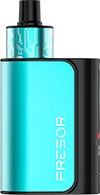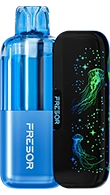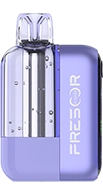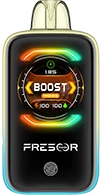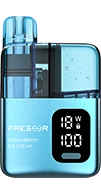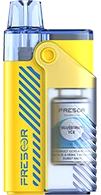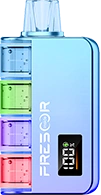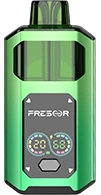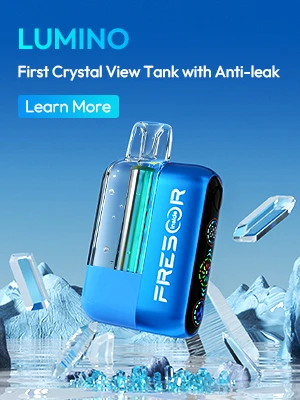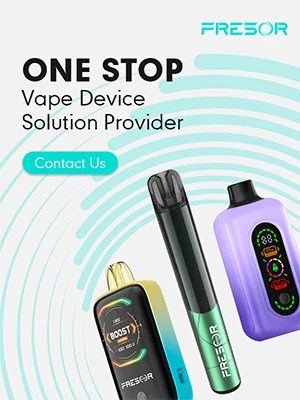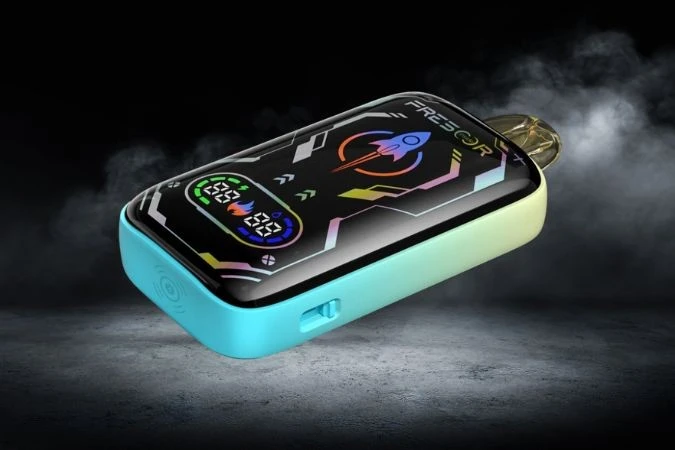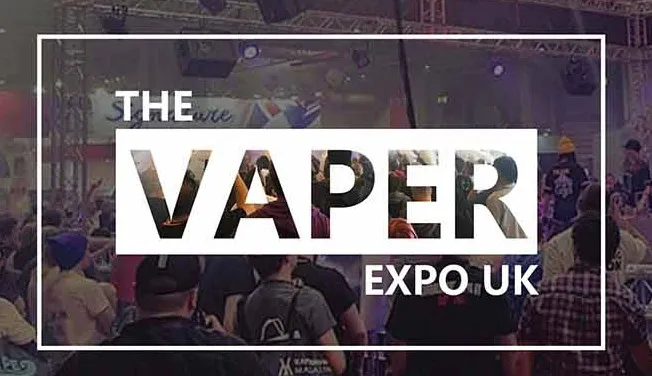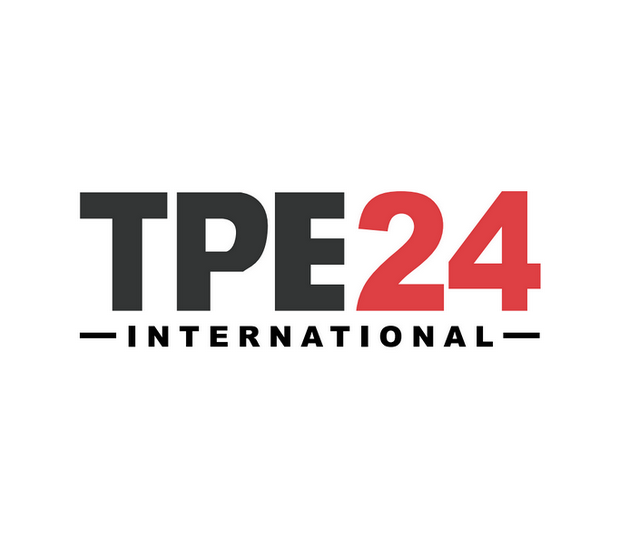Exploring Vape/E-Cigarette Regulations in Braizl in 2023 and Beyond

18 August 2023

Introduction
The global surge in vaping and e-cigarette use has prompted nations to address this trend through regulatory frameworks, and Brazil is no exception. As concerns grow over the health implications and youth engagement, Brazilian authorities have taken steps to shape the landscape of vaping and e-cigarette consumption. This article delves into Brazil's journey, from its initial regulations to the changes enacted in 2023. It explores the rationale behind these decisions, considers their impact on public health and industry dynamics, and speculates on the potential directions of future policies. Amidst a rapidly evolving landscape, Brazil's approach reflects the intricate balance between health preservation and individual choice.
Regulatory Policy Landscape
In a resolute stance, Brazil's regulatory policy landscape regarding electronic cigarettes came into sharp focus on July 6, 2022. During an extraordinary public meeting, the Brazilian National Health Surveillance Agency (Anvisa) maintained the prevailing ban on importing, advertising, and selling electronic cigarettes within the country. The decision stemmed from a unanimous board approval of the regulatory impact analysis report (AIR) on electronic smoking devices (DEF). Citing studies, the report reinforced concerns over DEFs, noting their role in nicotine dependence, health risks, and youth initiation into smoking. The report called for sustained prohibition alongside heightened enforcement actions and educational campaigns to combat illicit trade.
Recent Changes in 2023
In the year 2023, Brazil has witnessed pivotal shifts in its regulatory landscape concerning vaping and e-cigarettes. As the nation continues its proactive stance towards public health, a series of policy changes have been implemented to address the multifaceted challenges posed by electronic smoking devices. These developments, outlined below, collectively shape the nation's approach to curbing the use, promotion, and sale of e-cigarettes, while illuminating the intricate balance between safeguarding health and individual choice.
1. Sale of E-Cigarettes:
- Status: Banned
- Analysis: Resolution No. 46 of August 28, 2009, prohibits the retail sale of e-cigarettes, accessories, and refills. While a potential avenue for future sales is acknowledged, the current resolution maintains a prohibition.
2. Use in Indoor Public Places, Workplaces, and Public Transport:
- Status: Some Restrictions
- Analysis: Law No. 9.294 restricts the use of smoking products, including e-cigarettes, in enclosed public and private spaces. E-cigarette use is interpreted as prohibited where smoking is banned, such as indoor public places, workplaces, and public transport. The status reflects limited usage restrictions.
3. Advertising and Promotion (Excluding Point of Sale Product Display):
- Status: Banned
- Analysis: Resolution No. 46 of August 28, 2009, extends the ban to advertising e-cigarettes, along with related accessories and refills, ensuring restrictions on promotional activities.
4. Point of Sale Product Display:
- Status: Not Applicable
- Analysis: The sale and importation of e-cigarettes, accessories, and refills are already banned under the same resolution. Future product approvals would be subject to tobacco control legal frameworks, encompassing specific display restrictions.
5. Sale of E-Cigarettes via the Internet:
- Status: Not Applicable
- Analysis: The retail sale ban applies to e-cigarettes and related products. While potential internet sales are noted for the future, the present policies preclude such transactions.
6. Flavors:
- Status: Not Applicable
- Analysis: The existing ban on e-cigarette sale and importation extends to flavors. Potential approved products would adhere to tobacco control laws, including flavor restrictions based on RDC No. 14/2012.
7. Specified Ingredients/Additives:
- Status: Not Applicable
- Analysis: The prohibition on e-cigarette sale and importation encompasses ingredients and additives. If approved under specific conditions, products would be subject to additional restrictions on certain ingredients.
8. Health Warnings on Product Packaging:
- Status: Not Applicable
- Analysis: With the sale and importation of e-cigarettes already banned, present regulations do not apply. Approved products would necessitate health warnings on packaging as per tobacco control guidelines.
9. Other Product Packaging and Labeling Requirements:
- Status: Not Applicable
- Analysis: Similarly, the ban on e-cigarette sale and importation renders this policy inapplicable. Approved products would adhere to general tobacco control labeling requirements.
10. Maximum Nicotine Concentration:
- Status: Not Applicable
- Analysis: Existing prohibitions on e-cigarette sales encompass nicotine concentration. If approved under specific conditions, products would adhere to prescribed maximum nicotine levels.
11. Device Requirements:
- Status: Not Applicable
- Analysis: The ban on e-cigarette sale and importation negates the need for device-specific regulations.
12. Manufacturer/Importer Disclosures and/or Notification Requirements:
- Status: Not Applicable
- Analysis: The existing ban on e-cigarette sale and importation precludes the relevance of this policy. If approved under specific conditions, the framework would demand manufacturers and importers to register products and disclose additive information.
In navigating these recent policy changes, Brazil continues to strike a balance between public health concerns and individual liberties, setting a precedent for the evolving global discourse surrounding vaping and electronic smoking devices.
Future Trends and Speculations
As Brazil shapes its vaping and e-cigarette regulations in response to contemporary challenges, a glimpse into future trends and speculations unveils a dynamic landscape. Amid mounting concerns about public health and youth initiation, it's plausible that Brazil might further tighten restrictions on advertising, flavors, and access points. With an eye on technological advancements, the integration of digital tools for age verification and tracking sales could become a norm.
Collaborative efforts between regulatory bodies and industry stakeholders might yield innovative harm reduction strategies. Future policies may delve into comprehensive studies to assess long-term health impacts and refine regulations accordingly. However, a delicate balance between stringent oversight and acknowledging potential harm reduction benefits is paramount, guiding Brazil's approach in safeguarding public health while accommodating evolving consumer preferences and advancements in vaping technology.
Improve Your Vape Brand with TOP Vape OEM/ODM Manufacturer
ALD Vapor, a global leader in vaping industry, is professional in providing one-stop OEM/ODM atomization solutions for vape brands from all over the world since 2009. With over 14 years of experience, over 4000 workers, and 6 factory sites, the company has gained a great reputation among clients and a fast-growing market share.
Conclusion
As Brazil navigates the intricate terrain of vaping and e-cigarette regulations, its journey signifies the nation's commitment to safeguarding public health while adapting to the swiftly evolving landscape. The blend of historical policy foundations, recent transformative changes, and glimpses into potential future trajectories underscores the complexity of striking the right balance between health preservation and individual choice. Brazil's approach reflects the global discourse surrounding electronic smoking devices, encapsulating the perpetual struggle between regulation and harm reduction. As science advances and societal perceptions shift, the nation's commitment to evidence-based decisions will play a pivotal role in shaping policies that stand resilient in the face of emerging challenges, ensuring a healthier future for its populace.

